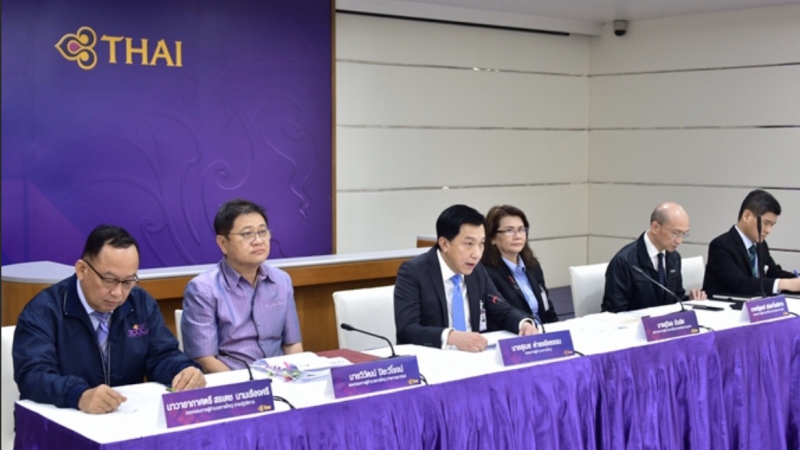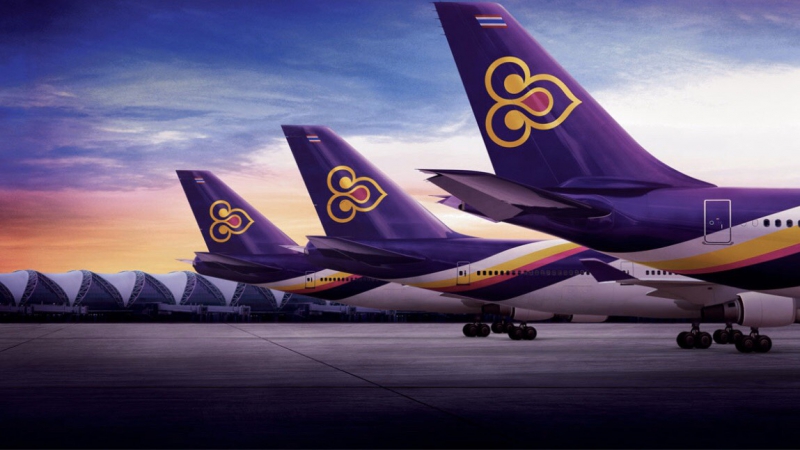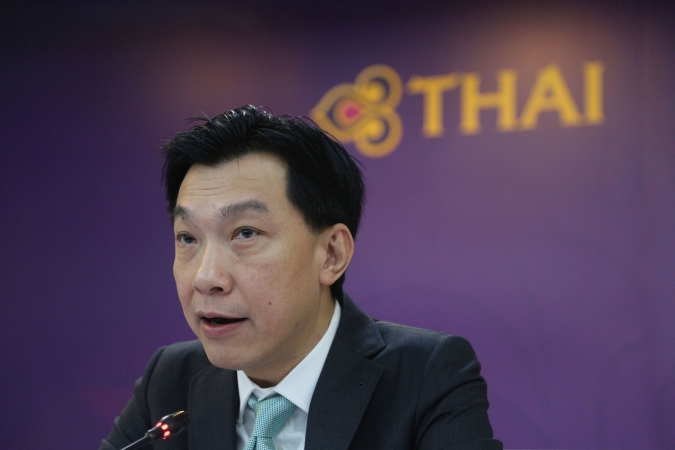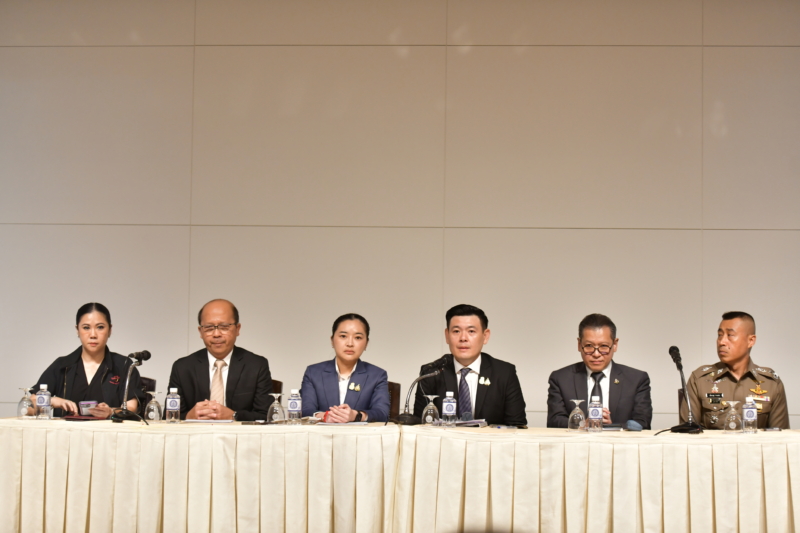THAI Announces Operating Results 2019, Cuts Costs to Fight Crisis
Mr. Sumeth Damrongchaitham, President, Thai Airways International Public Company Limited (THAI) said that in 2019, the Company implemented strict cost reduction measures that resulted in a 5.8% decrease in costs when compared to the previous year. THAI was affected by various negative factors, including the effects of the global economic slowdown, trade war between the U.S. and China, natural disaster, the strongest Baht appreciation in six years. THAI temporarily cancelled flights on some routes due to closure of airspace in the Islamic Republic of Pakistan, protests in Hong Kong, and the Covid-19 outbreak that began at the end of 2019. The Company recognized compensation based on the State Enterprise Labor Relations Committee
announcement that increased from 300 days to 400 days and the internal factor that was the delayed engine repair from the manufacturer. As a result, THAI and its subsidiaries’ operating results 2019 had a production traffic (ASK) that decreased by 2.7%, passenger traffic
(RPK) decreased by 0.9%, an average cabin factor of 79.1% that was higher than last year’s average of 77.6%, with 24.51 million passengers carried that was 0.8% more than last year. THAI and its subsidiaries earned a total revenue of THB 184,046 million, lower than the previous year by THB 15,454 million or 7.7%. Regardless of the negative operating results, the Company made improvements in cost control, whereby total expenses were THB 196,470 million that was lower than the previous year by THB 12,088 million or 5.8%; therefore, THAI and its subsidiaries incurred the net loss of THB 12,017 million.

Even though THAI incurred a loss in 2019, the Company made progress in various important projects, as follows:
– Progress on THAI’s MRO project: THAI sent the selection document to prospective private investors in December 2019, requesting proposals to be submitted by 6 March 2020, for further consideration by Selection Committee.
– THAI and THAI Smile, which synchronize their operations like brother-sister, combine their work plan particularly in sales and route planning, as THAI has more experience in sales. Under the block space concept, THAI will set the direction and strategies for all sales on THAI Smile beginning March 2020. As a result, the operating results will improve when compared to the same period last year.
Revenue, sales, and marketing management that is conducted by personalizing services to target customer groups with emphasis on creating ancillary revenue, such as revenue from the sale of preferred seats and increasing non-aviation revenue, such as increasing revenue from THAI Catering. This includes pushing forward digital marketing through big data and data analytics for market analysis in order to boost online sales, as well as sell products online through partners who are established in the online market.
In 2019, six aircraft were decommissioned and ownership was transferred, as follows: five Airbus A330-300 aircraft and one Boeing 747-400 aircraft.
– THAI built its eighth Royal Orchid Prestige Lounge at Suvarnabhumi Airport and opened for service on 21 October 2019, based on the Ecology Green Mood Concept, allowing passengers to relax in a natural atmosphere with convenient Thai service and facilities.
– A new route was opened to Sendai, Japan, in the center of Tohoku region on 29 October 2019, with three flights operated per week.
Furthermore, THAI has been affected by the Covid-19 crisis since the end of 2019 up to now, resulting in flight reductions just like other airlines. The Company has prepared plans and established various measures to handle this crisis and control the impact, with emphasis on cost control and cost reduction in non-operational areas and safety, for example postpone investments and employment, reduce procurement expenses and unnecessary equipment, including implement pay cuts for the President, Executive Vice Presidents, and Vice Presidents. THAI’s Board of Directors agreed to reduce their remuneration by 50 percent for six months, effective March 2020.
Should the Covid-19 crisis continue and worsen. THAI has prepared a plan and stronger measures.





